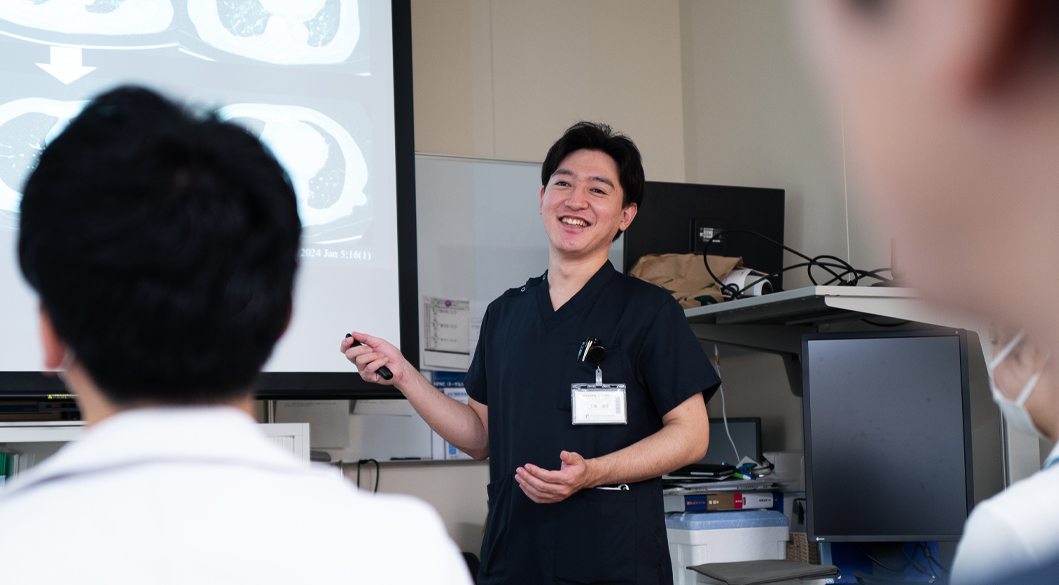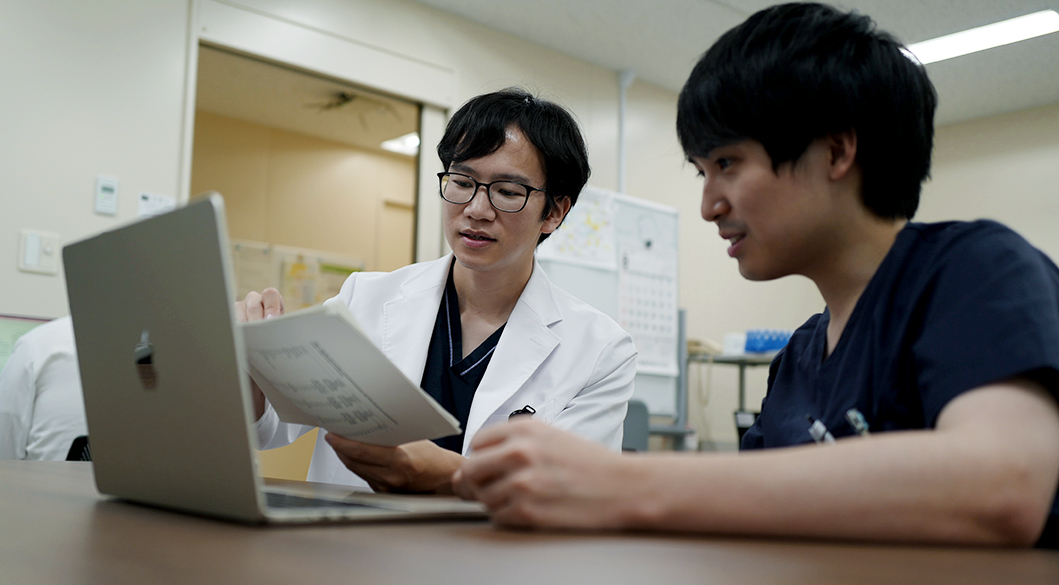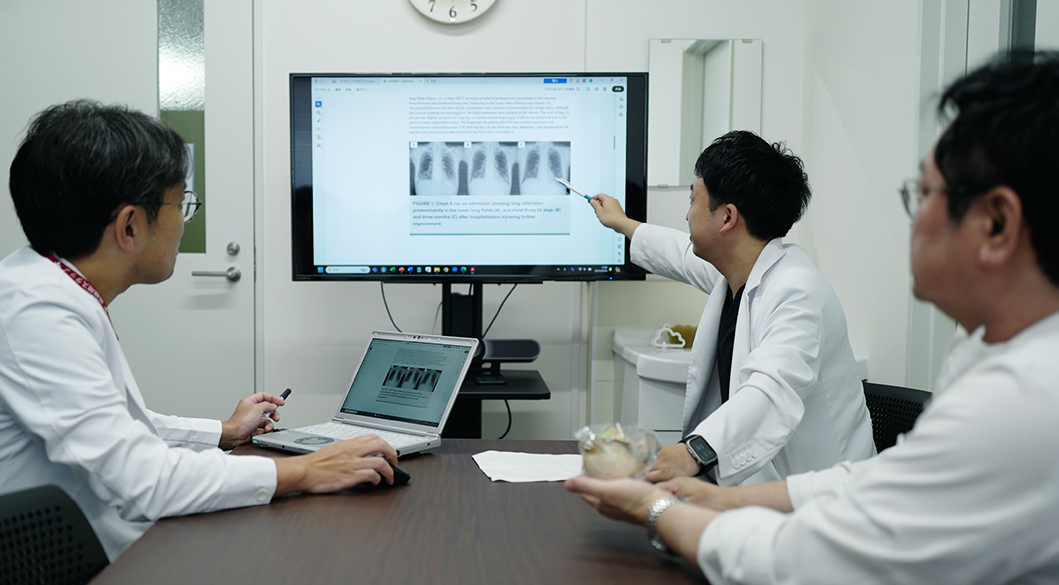Strengths of Our Department

A Lively Atmosphere Led by the Younger Generation
The department is largely composed of younger members, including the professor, creating a lively atmosphere that embraces new ideas while breaking free from traditional constraints. During conferences, young doctors freely speak up and ask questions without hesitation. Asking questions about things that are not understood serves as a valuable stimulus for both the person asking and the one answering, often leading to the emergence of new clinical questions. There is no atmosphere where only the opinions of senior doctors dominate, resulting in silence.

A Guidance System Well-versed in Various Fields
The Respiratory and Infectious Disease Department covers a wide range of areas, including infections, lung cancer, interstitial pneumonia, and airway diseases. It also offers an abundance of techniques such as bronchoscopy, chest drainage, and thoracoscopic examinations under local anesthesia. Young doctors are assigned patients from various specialties to gain broad experience. Our department is home to many specialists and instructors involved in national guidelines. With first-rate guidance, the goal is to acquire specialist certification reliably and quickly. Additionally, we hold research meetings for young doctors to discuss case reports and clinical studies. We aim to encourage them to engage in clinical research as early as possible and gain the experience of publishing in English-language journals.

A Robust Education and Training Network
Our frontline guidance is not only up-to-date but also requires attractive and easy-to-understand explanations. The instruction in our department is highly praised by medical students and young doctors. We frequently receive requests to contribute to publications such as the National Medical Examination Guide, Byōki ga Miru (Medic Media), Today’s Treatment Guidelines (Igaku-Shoin), and various guideline commentaries.
At affiliated hospitals, doctors with various instructional qualifications are assigned to provide guidance. Unlike university hospitals, it is also important to treat common diseases. In addition to hospitals within the prefecture, we have established a system for training at institutions such as the Shizuoka Cancer Center, Japanese Red Cross Medical Center, and Aso Iizuka Hospital. Furthermore, we actively encourage not only domestic but also international study opportunities.
